[dkpdf-columns columns=”3″ equal-columns=”false” gap=”10″]
As I suspect is the case with countless others, I was initially quite unenthused about the new government policy mandating all doctors to acquire a minimum number of continuing medical education (CME) points as a requisite for yearly licensing by the Medical and Dental Council of Nigeria (MDCN). I had fallen a little behind in keeping up with this requirement in the previous year and so was faced with the task of doubling-up on my point’s acquisition in the current year.
This set me off on a CME point’s acquisition chase! After several failed attempts at finding the right set of courses to deliver the requisite set of CME requirements, a friend recommended the BeyHealth Masterclass lecture series, a programme relatively unheard of at the time.
And although it seemed more expensive than many of the other programmes I had become aware of in the course of my research,I decided to give it a try. It turned out to be an extremely good decision and I have not looked back since! The Masterclass programme has consistently met my expectations and even in some instances, exceeded them.
I share some of my experiences of the programme in the sections that follow.
Organisation & Timeliness
The Masterclasses are always conducted in comfortable surroundings. The programme is timely and well-organised, and the location is always very carefully thought-through – usually alternating between the Island and the mainland areas of Lagos.
I vividly recall attending one of the earlier sessions with my new-born baby (yes, I was that desperate!) BeyHealth staff ensured that my baby (and her nanny) were comfortable while I attended the lectures without distraction.I remember thinking at the time …What a wonderfully baby-friendly organization this is!
Curriculum Content
The Masterclass CME programme covers a wide range of topics scheduled throughout the year. In the past, relevant topics have been drawn from a variety of subject-matter areas,such as endocrinology, respiratory medicine,cardiology, neurology, psychiatry, surgery and paediatrics.
Each Masterclass has a themed or symptombased approach to it – for example, ‘Abdominal Pain ?Cause’, providing an opportunity to blend-in a variety of topics relevant to the subject-matter at hand, and of interest to the audience in attendance, usually largely comprising general / community practitioners and a range of interested professionals and clinicians from secondary and tertiary care.
Conference objectives are always very well defined and published in advance, including the rationale behind the programme (‘where does this course fit in?’) and relevance to particular sections of the healthcare provider community (‘who should attend?’).
Increasingly, I have noticed a drive towards the inclusion of topics and sessions that have a direct bearing on healthcare administration and policy. My most recent attendance at a BeyHealth Masterclass was the Medicine,
Accountability and the Law conference,organised by in collaboration with the Nigerian Bar Association Section on Business Law (NBA-SBL) on the 23rd and 24th of January this year.
This conference was a unique and particularly memorable experience for me. It offered an opportunity to learn from and share knowledge with professional colleagues (and facilitators) from the legal world.
The programme served not only as a significant an eye-opener to the ‘ethical and legal implications of medical practice in the context of Nigerian law’ (as intended by the organisers),but also encouraged reflection on the role of our ‘learned’ colleagues as partners in the overall objective of improving the quality and standard of healthcare service delivery across the country.
Teaching Facilitators/Faculty
The organisers of the BeyHealth Masterclass programme openly accept as one of their key objectives, a desire to bring together the ‘brightest and best’ of locally-trained talent and Nigerians in the diaspora with an interest in
giving back to a learning and development environment that supports continuing medical education of doctors and allied healthcare professionals locally.
This distinctive feature of the Masterclass programme ensures that delegates benefit maximally from teaching on the best of evidence-based practice in accordance with global standards, contextualised to suit local needs.
Teaching facilitators and session speakers are not limited to doctors and medical practitioners. Sessions have previously been delivered by nurses, pharmacists, dieticians,hospital administrators and policy-makers,where specific input from these professionals has been required to fulfil the objectives of the programme.
We are, after all, adult learners and developing a culture of lifelong learning is the very essence of continuing medical education
Engaging with these subject-matter experts both in the teaching and networking sessions (over lunch or coffee) further exposes one to a range of interesting perspectives on healthcare and also a greater awareness of the distribution of locally available resources within the community. I find this element particularly useful
for the simple practical reason that my personal referral pool of expert clinical resources has all of a sudden become richer and expanded dramatically in size!
Refreshments
I must talk about the food! Definitely a huge plus in my opinion! The programme typically includes a tea and coffee-break on both sides of a one-hour lunch interval. Lunch comes with a varied menu, which includes a choice of local and intercontinental dishes. I think it is a really good idea to make quite a big deal of the lunch interval because as I mentioned previously, it represents a significant opportunity to continue the learning and interaction in an informal setting – rather like ‘break-out’ sessions, but more enjoyable and with food, without the rules!
The menu has been improved over time to include a range of healthy meal options in line with the central message of the Masterclass teaching programme. I am really pleased that this feature was enhanced in response to
delegates’ feedback on the subject, another encouraging sign of the organisation’s responsiveness to the needs of its customers.Quite funny though, is that the company now has a ‘no sugar’ policy for all its educational events (and I have it on good authority that this even applies to staff at its offices in Lagos). I wonder how that is working out for them! Lol!
 Feedback
Feedback
This leads on very nicely to the question of feedback. There is a well-established culture within the BeyHealth community of requesting and acting on feedback. Structured feedback forms are a permanent feature of the Masterclass programme and delegates always have a sense of contributing to the quality and content of the entire educational experience.
It has been useful for me to observe that important points of feedback regarding location, relevance and delivery lecture topics,quality and perceived expertise of speakers and recommendations for future topics have all
been taken very firmly on board in the past.There is no doubt that a policy of engaging participant input has contributed significantly to an enthusiasm for greater participation (among delegates) and also to the vast improvements seen in the programme over the years.
Discounts
Particularly heartwarming, is the consistency of generous discounts I have enjoyed with each BeyHealth Masterclass event. This however usually requires a level of organisation and proper planning in advance.
is true (as mentioned earlier) that BeyHealth conferences and Masterclasses are generally more expensive than similar programmes run elsewhere in the country. It is equally interesting (and ironical) however, that I have only ever paid the full rate on one occasion – during my firstever registration for a BeyHealth event. I make
a point of taking advantage of the ‘early bird’ promotion in each case, which is always advertised online several weeks (and sometimes, months) in advance! More so, I have also enjoyed two FREE Masterclasses with meals included! What’s not to like?
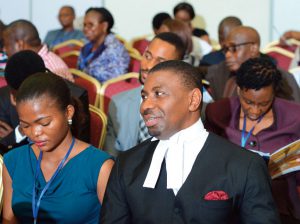
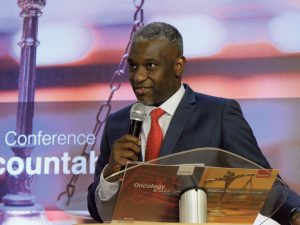
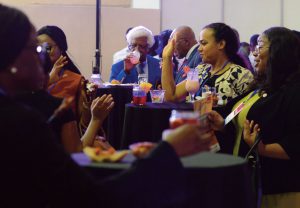
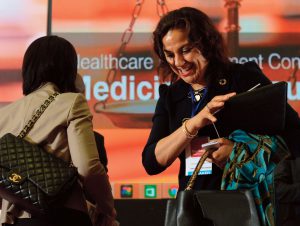 On Reflection
On Reflection
Oftentimes, the state of the Nigerian health sector leaves one feeling despondent. The sector is grossly underfunded, many facilities and resources are obsolete and decrepit.Remuneration of health workers is poor, thus
encouraging abandonment of the medical profession for more profitable ventures within and outside the country – not forgetting the high migration rate and professional ‘brain drain’ synonymous with medical practitioners.All of this has had the effect of further worsening the state of health care in the country and put a strain on the available
workforce in its health institutions.
Nonetheless, the Masterclass programme affords one the opportunity to meet and engage with medical professionals and enthusiasts as well as old colleagues doing their bit in their little corner of the healthcare sector, which in turn encourages others with hope and doggedness.
I daresay that the BeyHealth Masterclass program is a positive influence in moving the health sector forward, doing its bit, one step at a time, in educating, influencing and engaging stakeholders throughout the healthcare delivery sector.
I do have one further suggestion though. Going forward, it is important for BeyHealth and other organisations with similar ideals to consistently organise fora that encourage deliberate networking opportunities for health workers and other professionals, in a relaxed and nonacademic atmosphere, such as we experienced during the after-conference cocktail at the Medicine, Accountability and Law programme. There is very little doubt that we all felt the influence of the lawyers’involvement in that particular conference and long may it continue!
Networking events such as this will most definitely help to nurture collaborations and partnerships within the health industry and amongst cross-sector professionals. It is important for us all that this is not considered a
one-hit wonder! Replicating this formula in collaboration with other allied health agencies can only help to bridge the gap (as well as mend fences) between healthcare professional colleagues across the country. Sounds like a
tall order, but one never knows!
In Conclusion
I was recently directed to an old BMJ article,highlighting excerpts from Malcolm Knowles’principles of Andragogy, that is, ‘the art and science of teaching adults to learn’. It is remarkable to see just how much the
organisers of the BeyHealth Masterclass lectures have taken these principles to heart,especially evident in the planning and implementation of the various elements of each programme. We are all, after all, adult learners
and developing a culture of lifelong learning is the very essence of continuing medical education.
My personal referral pool of expert clinical resources has become richer and expanded dramatically in size!
I am extremely proud of what we have all achieved together as alumni of the BeyHealth Masterclass community. It is a fact that I leave every Masterclass event with renewed purpose and action points, having refreshed and
improved on existing medical knowledge and skills. The programme consistently exposes one to current trends in evidence-based medical practice. It provokes one to evaluate one’s methodology, discuss challenges and share victories on each occasion.
I always look forward to the BeyHealth Masterclasses lecture series. I believe that I speak for countless others in stating that continuing medical education has become for me, not just a matter of accumulating the required number of CME points or fulfilling the stringent requirements of the MDCN in this regard, but more a question of continuous improvement and lifelong education and learning.
[/dkpdf-columns]
read moreDisclosure forms provided by the author are available at NEJM.org.
Editor’s note:
Author Affiliations
Supplementary Material
| Disclosure Forms | 83KB |
Add your Comment
Add your Comment
Leave a Reply
You must be logged in to post a comment.
BHQJ 2018 ; 001:34-36
Related Article 
Medical Negligence & the Law5th May 2018 . Atrogenic harm is a matter of significant concern in Nigeria admin
Colorectal Cancer Overview5th May 2018 . [dkpdf-columns columns="3" equal-columns="false" gap="10"] Introduction Colorectal cancer is a major admin
Funding Healthcare Services in Nigeria – A conundrum of demand, policy and supply!5th May 2018 . [dkpdf-columns columns="3" equal-columns="false" gap="10"] Doctor, I happy say na you admin
5 “Provocations” of Healthcare Quality Reform6th May 2018 . [dkpdf-columns columns="3" equal-columns="false" gap="10"] n the four decades since he admin
Health Insurance, Activism & Urgent Change6th May 2018 . [dkpdf-columns columns="3" equal-columns="false" gap="10"] AR: Dr Soyinka, it’s wonderful to admin
Anne Olowu talks about her “Masterclass” experience6th May 2018 . [dkpdf-columns columns="3" equal-columns="false" gap="10"] As I suspect is the case admin
Stomach & Oesophageal Cancer in Nigeria6th May 2018 . [dkpdf-columns columns="3" equal-columns="false" gap="10"] Gastric and Oesophageal (Upper GI) cancers admin
Setting out the Stall!7th May 2018 . [dkpdf-columns columns="3" equal-columns="false" gap="10"] "The drawbacks of our false knowledge admin



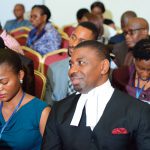
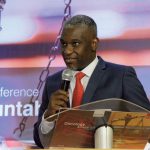
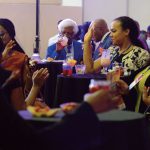
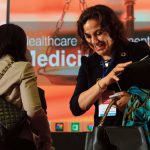
Leave a Reply
You must be logged in to post a comment.